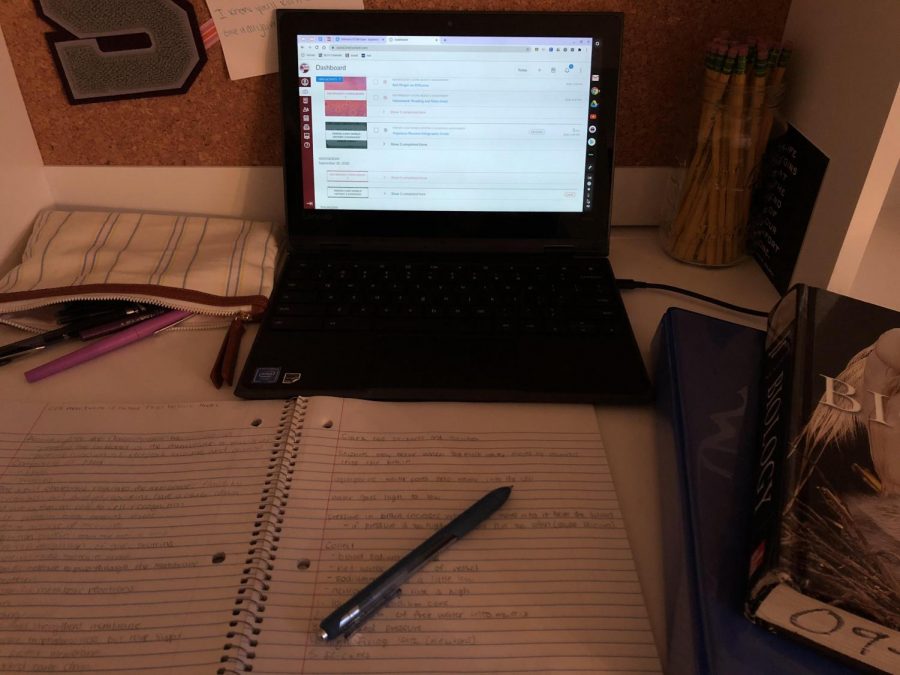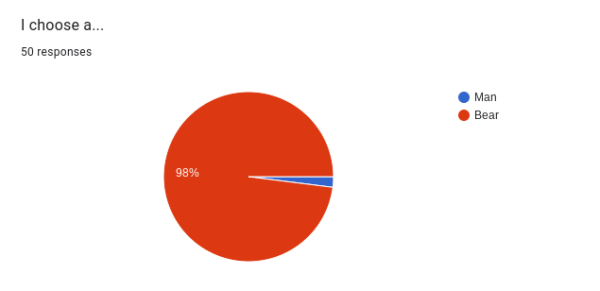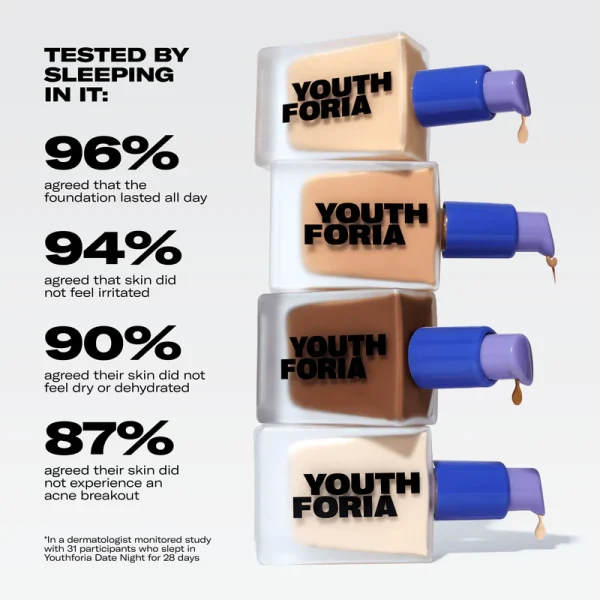How Much is Too Much?
A photo of assignments on a Chromebook taken on Wednesday, Sept. 30, 2020, at my workspace in my room, State College, PA. After my field hockey game on Wednesday evening, I was able to complete all of my schoolwork from that day at 10:30 PM.
October 14, 2020
The new approach to school this year has impacted students all over the country, giving them new challenges when it comes to school and the work that they receive. Throughout this school year, there has been a question commonly asked: Are students receiving too much work from their teachers?
The stress of schoolwork is something that most students are constantly thinking about. Although some students don’t deal with the same amount of stress that schoolwork brings to others, most high schoolers spend hours and hours thinking about the work they have to complete by the morning.
With this school year being drastically different because of COVID-19, students are spending the majority of their days on computers. It may not seem like a big deal to some, but after staring at a screen all day, you will realize the effect it has on you.
The amount of time freshman Mayra Briggs spends on her computer adds up to nearly nine or more hours a day.
“After sitting on my Chromebook for six hours and having to do more work on my computer [for homework], I get tired and get headaches,” she said.
The CDC recommends that teenagers should only be awake for fourteen hours of the day, which means that Briggs spends more than half of her day on a computer doing schoolwork.
“I put a lot of effort into my schoolwork, but sometimes I just fall behind on assignments,” Briggs said.
Although she has a full schedule now, Briggs’ spring semester schedule will consist only of two classes, meaning she won’t be receiving nearly as much schoolwork as she is now.
Not only do students have school five days of the week, but many participate in extracurricular activities, sports, and other things outside of school. Briggs feels that teachers should realize that most students have other things outside of school that are also very important to them.
As a student-athlete, I dedicate my time to completing my schoolwork, but also spend many hours a week at practices and games for my sport. Constantly being busy, it is not always easy to be on top of the schoolwork I receive. The assignments I get every night for homework pile up throughout the day and leave me with a load of stress to deal with after practice.
Junior Madeline Hunter participates in many activities outside of school. Hunter is a member of five clubs at State High and also has a job, both taking up a lot of time in her day. Not only is she very involved in the school, but Hunter also spends many hours a day working on her schoolwork– three hours after school, to be exact.
The teenage years are supposed to be enjoyable and fun, consisting of meeting new friends and trying new things, right? Instead, high school students are spending the majority of their days staring at the screen of their computer, completing the hours of schoolwork they have.
Maybe this is how it should be; students should be expected to participate in extracurriculars and things outside of school. But students simply cannot be expected to complete all of the work they receive if their time to complete it is so limited.













mayra • Nov 3, 2020 at 1:49 PM
🙂 Awesome Hannah thank you